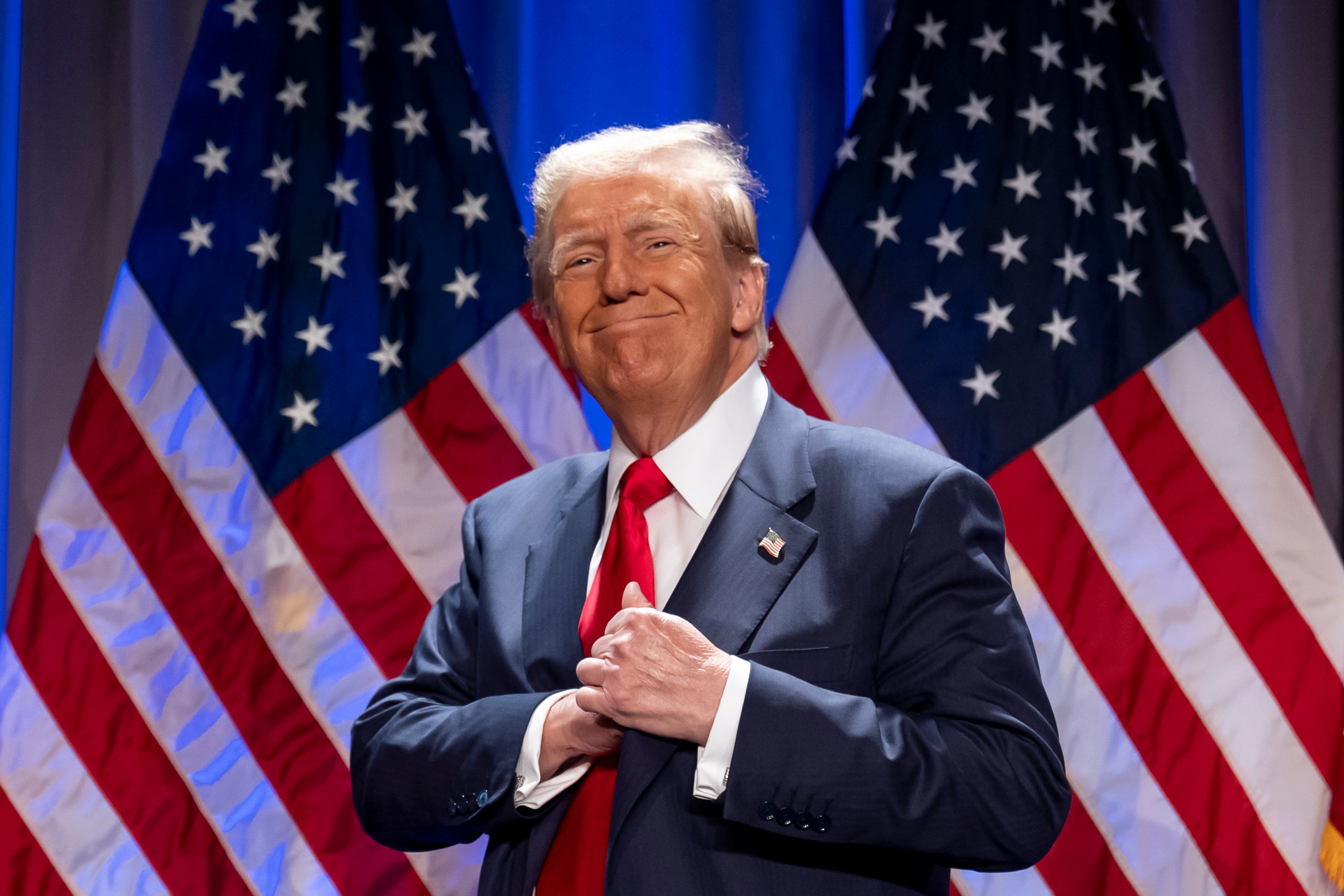Can Starmer avoid a US trade war without cutting our ties with Europe?
Thanks to Donald Trump’s tariff threats, negotiating a deal with the United States just got even harder – leaving the prime minister stuck in the middle with the EU, says Andrew Grice


There is only one politician Keir Starmer really detests – Boris Johnson. Yet the prime minister is about to ape one of Johnson’s favourite ploys by trying to have his cake and eat it.
Starmer faces an agonising dilemma: when Donald Trump returns to the White House, he is expected to impose tariffs of between 10 per cent and 20 per cent on all imports to the US (with a 60 per cent tariff on China). Should the UK try to secure a carve-out, perhaps by negotiating a trade deal with the US? Or should Starmer join forces with the EU, which will almost certainly impose tit-for-tat tariffs on American goods?
On the face of it, the PM will have to choose between alienating the world’s most powerful leader – just as the UK tries to preserve the much-vaunted special relationship – and jeopardising his drive to reset relations with the EU to aid the UK economy.
Trump might well try to impose what opinion pollsters call a “forced choice” on the UK, with no “don’t know” option. But ministers tell me Starmer regards it as a false choice. “The goal is to lean into the US without alienating the EU,” one insider said. “But it will be very difficult to achieve.”
So Starmer will try to keep a foot in both the US and EU camps as he tiptoes through a minefield. “We have got to navigate our way through this and have… the best of both worlds,” Peter Mandelson, one of the leading candidates to become UK ambassador in Washington, told a Times Radio podcast. “We have got to find a way to have our cake and eat it.”
Although UK officials are drawing up plans for retaliatory tariffs on the US, ministers do not intend to introduce them – even if the EU does. Starmer would plead with Trump not to damage a natural ally and argue that the US economy would suffer, too.
Restarting stalled talks on a US trade deal might buy some time but would probably prove a dead end. The new Tory leader Kemi Badenoch, a former business and trade secretary, claims naively there is an agreement “on a shelf, ready to be dusted down”.
But if Trump couldn’t do a deal with his pal Johnson, could he really reach one with a Labour government? Trump’s demands would include the UK accepting cheap American food imports such as chlorinated chicken and hormone-fed beef – when the Starmer government has already stumbled into a war of words with British farmers by changing inheritance tax rules.
The US would gain access to the NHS for its pharmaceutical giants, which triggered an outbreak of cold feet when the Tories negotiated with Washington. The agreement Trump wants would be totally incompatible with Starmer’s hopes for a deal with the EU on agrifoods to reduce trade friction. Another problem: Northern Ireland still follows EU regulations in this area and aligns with EU single market rules on goods.
In talks with the US, the UK would put the focus on financial services, digital and technology. Perhaps Starmer might just find a middle way, siding with the EU on high food standards and with the US by not over-regulating industries of the future like AI, as some UK ministers suspect the EU has done. As one adviser put it starkly: “We have to be with the new economy in the US, rather than the old economy in the EU.”
Some Starmer allies even dare to ponder a dream scenario in which the UK manages to get the US, EU and UK on the same page for a three-way trade deal on goods to hand Western democracies a big economic prize. I fear they may have to dream on. Trump’s patience might not last long if he did not achieve his wider goals in UK negotiations. He hates multilateral organisations in general and the EU in particular. Making America great again will mean greater divergence from the “rules, rules, rules” approach in Brussels.
Starmer may have another acute dilemma: Trump might ask the UK to join him in imposing tariffs on China. Risky, as the UK would be exposed. But it would give the PM a chance to ask for something in return.
The other thing Starmer can bring to Trump’s table is on security. Labour is committed to raising defence spending to 2.5 per cent of GDP, but has not set a date. A cabinet battle looms: the Treasury wants to delay hitting the target until after the 2030 date the Conservatives promised before the July election (without providing the money for it). A defence review will be completed next spring, but perhaps Starmer will be tempted to name a date early next year to win precious brownie points from the incoming president.
There is also a nightmare scenario for the UK. Standing in the middle of the road is dangerous. It could alienate both the US and EU, leaving the UK dangerously isolated and resulting in economic damage and even lower than expected growth.
Sometimes in politics all you can do is muddle through. For Starmer, there is no alternative.
Join our commenting forum
Join thought-provoking conversations, follow other Independent readers and see their replies
Comments
Bookmark popover
Removed from bookmarks